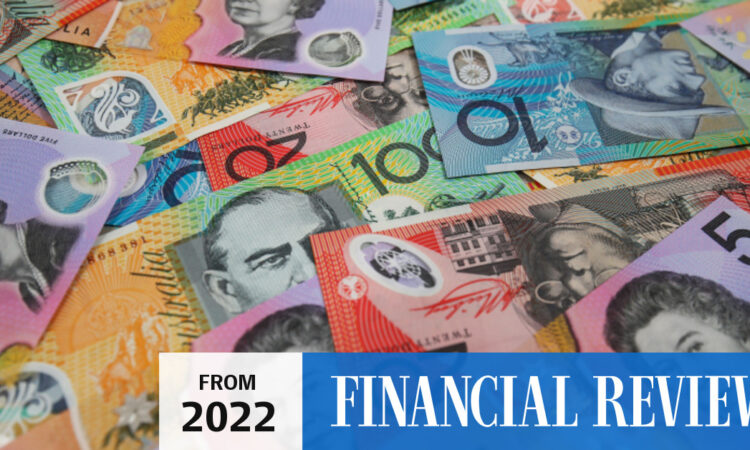
However, investment strategists suggest that the volatility across currency markets presents an opportunity for certain pockets of the local sharemarket.
This includes ASX-listed companies that have a significant share of their revenue derived from US assets, including a range of industrial and healthcare companies.
Fund manager VanEck highlights CSL (which generates nearly half of its revenue from the US) as a key beneficiary, alongside other locally listed stocks with high exposure to the world’s largest economy such as Computershare, James Hardie, Block, Aristocrat, Cochlear, ResMed and Amcor.
However, Morgan Stanley points out that the weakness across other major currencies including the euro, sterling and Japanese yen complicates matters.
There are 41 stocks in the broker’s coverage that have US revenue exposure of 20 per cent or more, but more than half of them also have meaningful exposure to Europe, the UK, or both.
Local businesses that export goods or services, such as mining and agriculture companies, are also set to benefit from weakness in the Aussie because it makes Australian commodities more attractive to overseas buyers.
Daniel Pennell, who runs Plato’s Global Shares Income Fund, points to BHP, South32, Woodside and Incitec Pivot as ASX-listed companies that will likely profit from the Aussie dollar’s weakness.
However, this should be weighed against the fact that a stronger US dollar typically drags on global commodity prices because many raw materials are priced in the currency. This makes commodities more expensive in other non-US dollar currencies, placing pressure on demand.

While Morgan Stanley acknowledges that a stronger US dollar and recession risks have a negative influence on commodity prices and mining stocks, it maintained its “overweight” exposure to the energy and resources sectors.
“A potential floor in oil and our global team’s view that iron ore can hold current levels for the next six to nine months flash an opportunity to combine the lower Aussie dollar with commodity prices, supporting valuation and free cash flow credentials,” said Morgan Stanley equitgy strategist Chris Nicol.
A softer Australian dollar should also provide a much-needed boost for local travel stocks as US residents capitalise on the exchange rate and local consumers are more inclined to travel interstate rather than to the US.
“A weaker Australian dollar is typically seen as a growth stimulus for our economy, encouraging local over (now more expensive) global production, and encouraging us to travel domestically,” Haslem says.
“If sustained, it can stimulate some of our key export sectors, such as tourism and education.”
Local companies most vulnerable to the rallying greenback are those with US dollar-denominated costs, or businesses that import goods from the country and can’t pass those increased costs on to consumers.
But given Australia does not have many manufacturers, and the economy is not overly reliant on US goods and services, the strength in the US dollar will not have a noticeable effect on Australia’s large cap stocks, according to VanEck.
Broker Wilsons also points out that some consumer discretionary companies typically suffer from margin pressures when the local currency falls because their products are wholly imported, or largely assembled from imported components.
Hedge debate
Australian investors who invest directly in global or US stocks also have the option to hedge their offshore positions to reduce the effects of currency fluctuations on their investment performance.
VanEck is encouraging investors to consider hedging foreign holdings back to the Australian dollar based on its view that the currency is entering an oversold position against the greenback.
“Over the last month we have seen the amount of money flowing into our VanEck MSCI International Quality (Hedged) ETF increase,” says Russel Chesler, head of investments at VanEck.
“[This] reflects the lower level of the Aussie, and the view that it has greater upside than downside.”
In contrast, Plato’s Global Shares Income Fund is unhedged, allowing its investors to receive the benefits of diversified currency exposure given that the Australian dollar often softens when global equity markets are weakening.
“The environment today is a good example of why an unhedged allocation to global shares, particularly for income investors, can work to protect income when markets are falling,” Pennell says.
Credit Suisse Australia is also sticking to its long-held strategy of leaving its international equity holdings fully unhedged to reduce volatility for local investors.
“We are actively considering at what level we would hedge. In FX markets the question is like how long is a piece of string,” says Credit Suisse’s local chief investment officer, Andrew McAuley. “If and when we do hedge, it won’t be a significant position.”


